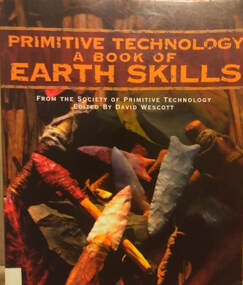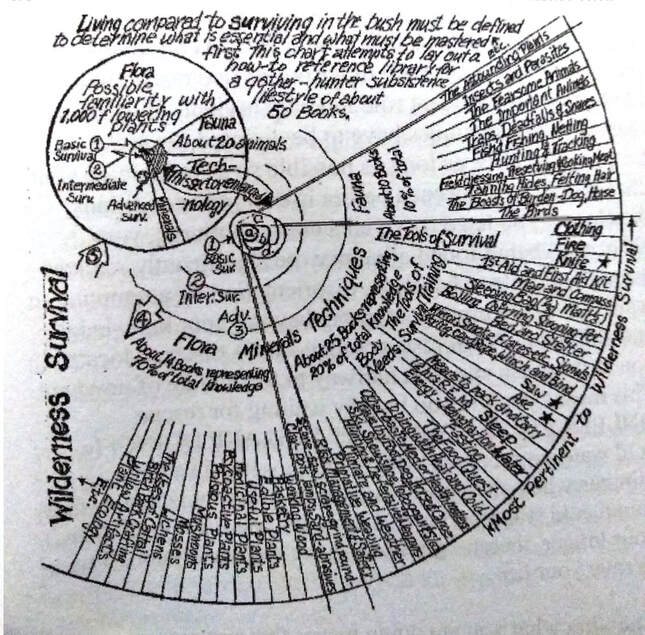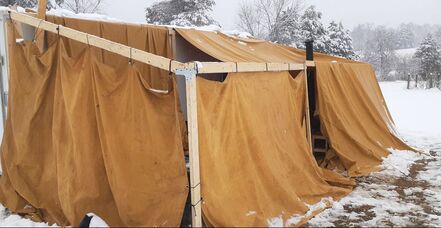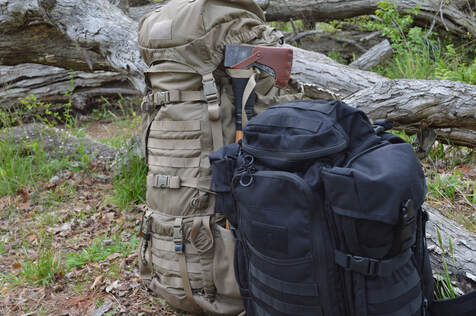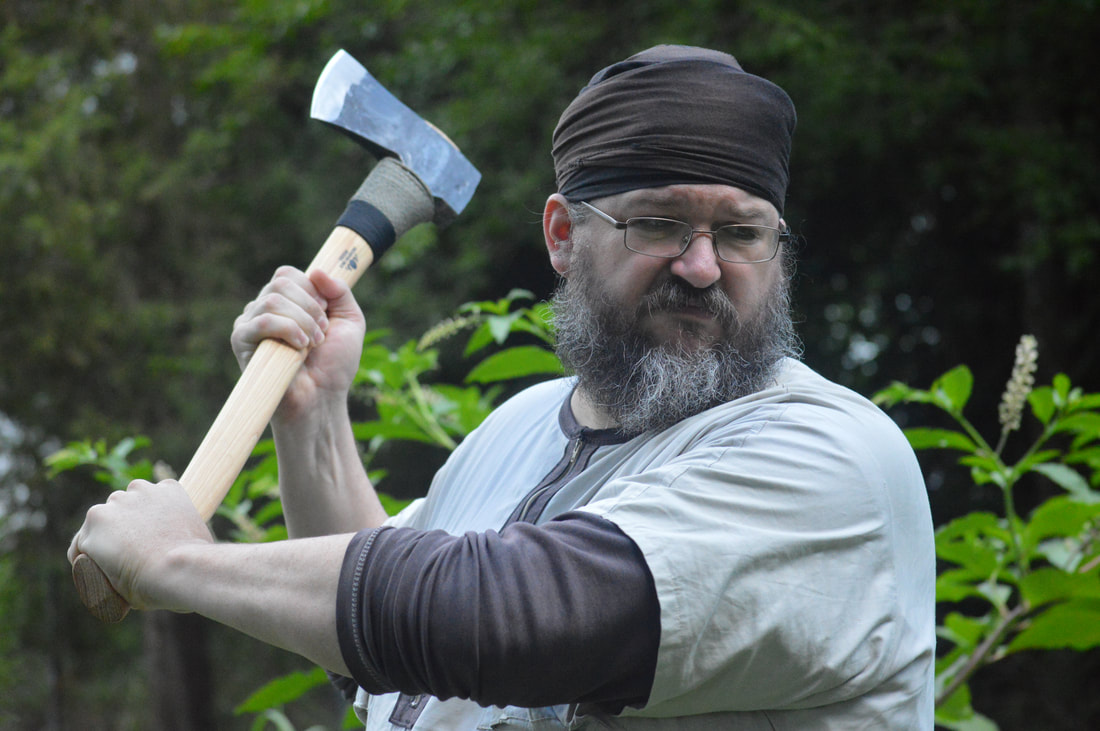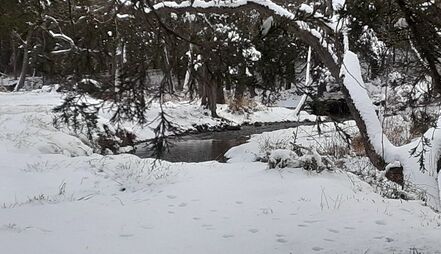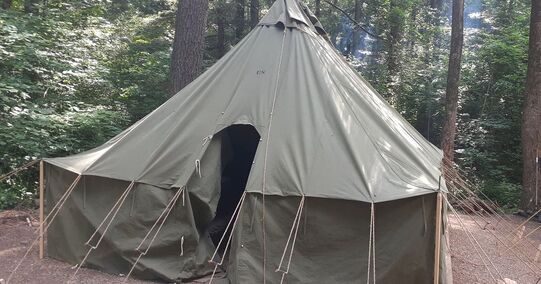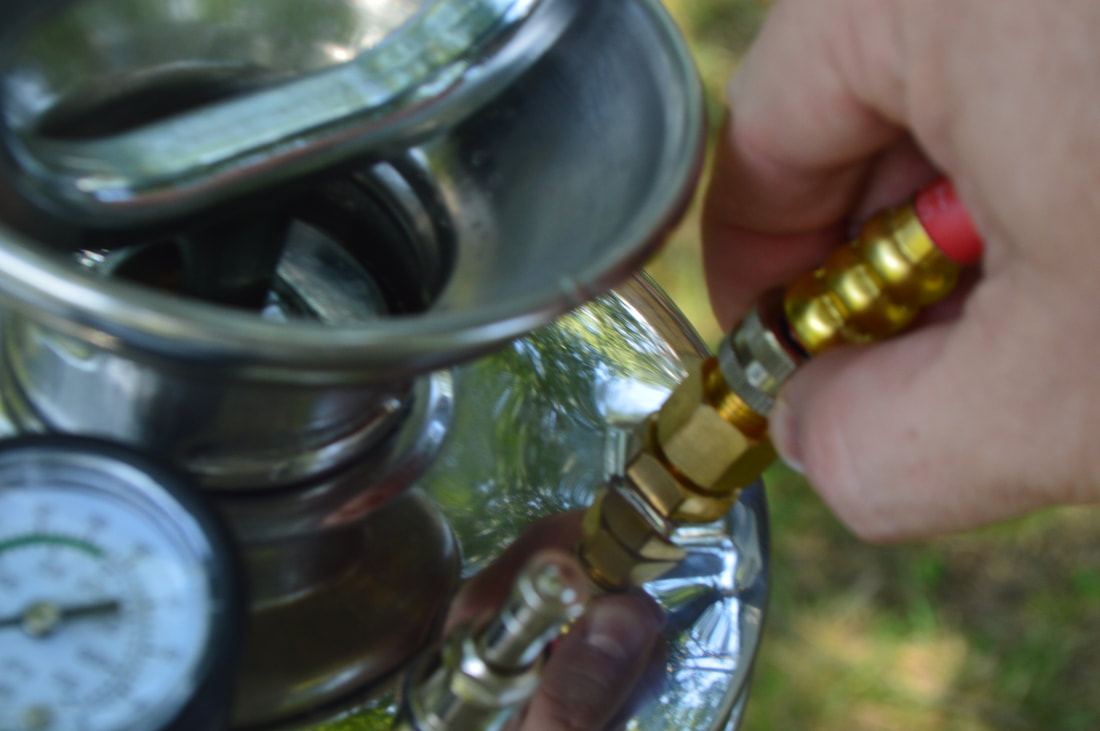|
Mors Kochanski wrote a book which was published in 2015, which was once taught at the university level in his Extended Summer and Winter Courses. Unfortunately it is no longer is available today but in memory of it he called that book he wrote the Grand Syllabus, which was an outline of the information he had once covered covering a list of required skills sets one should seek to know and achieve if one was seriously seeking to become a survival instructor. The purpose of the course was to help students grow from basic skill sets to intermediate and advanced as knowledge and skills developed by those taking the course. Although it was well laid out to some extent, there have been notable issues concerning its format and construction. Some topics should have been either combined into one umbrella while others should have been been placed else where in its order or placement. So I decided to completely revamp the whole entire book in order to organize the subjects in a more suitable fashion in my opinion. And from that order I created a main introduction on what is survival, while splitting up the course material into five main categories to focus upon. Each section will cover the those points listed below and will located on the website in their own category. In order to understand the flow and organization I have already begun laying out a table of context which you will find listed below and a link which will direct you straight to the specific web section which will discuss these very sections listed below.
|
"This outline/checklist/syllabus attempts to list the topics one may consider to qualify as an Instructor of Wilderness Living Skills and Survival in the world." -Mors Kochanski "Grand Syllabus Instructor Trainee Program"
~ Exploring THE GRAND SYLLABUS ~
|
I. Survival Gear
-The Necessities- Section 1:1 -Weaving and Sewing Basics -Clothing -The Sleeping System -The Bushcraft Knife Section 1:2 -Tools for Making Fire -Making and Establishing a Fire -Primitive Fire Tech -The Forge Section 1:3 -Bushcraft Tools -Axe & Hatchet -Saws Section 1:4 -The Rucksack -The Survival Kit -Minimal Gear Set Up Section 1:5 -Camp Site Essential Set Up -The Tent II. Survival Training -Fitness & Medical Knowledge- Section 1:1 -Physical Fitness/Training -Emergency Medical Knowledge -Bush Sanitation -Emergency Med Kits -Medicinal Plants -Direction & Communication- Section 1:2 -Land Navigation -Signs, Signals, Blazing & Trail Markers -Radio Communication -Scavenging The Wilderness- Section 1:3 -Earth Resources -Water/Wild Edibles -Catching Wild Animals For Food -Food Preservation Techniques -Caching Methods -Cooking Over a Fire Section 1:4 -Self Defense -Being Ill-Prepared |
III. In The Bush
-On The Move- Section 1:1 -Traveling Methods -Crafting- Section 1:2 -Bindcraft, Ropework & Cordage -Pole and Cord Construction -Moving Heavy Objects -Natural Crafting -Shelter Skills IV. Dangers & Hazards -Regional Awareness- Section 1:1 -Weather & Land Regions -Summer/Winter Hazards In The Woods -Summer/Winter Hazards In The Mountains -Summer/Winter Hazards In The Desert -Snowcraft -Seasonal Problems- Section 1:2 -Fauna -Insects Pests -Diseases V. Group Moral -Preparing For The Worse- Section 1:1 -Mental, Physical Aspects of Survival -Taking Care Of The Needs Of Others- Section 1:2 -The Needs of Children, Women, Mothers and Wives VI. Urban Survival -Detaching- Section 1:1 -Before The Grid Is Down -When The Grid Is Down VII. Urban Tech To Primitive Tech -Separation From Dependencies- Section 1:1 -Getting Away From Electrical Power Dependency -Getting Away From Gas Dependency -Getting Away From Grocery Store Dependency |
~ Figuring OUt Your Skill Sets ~
Within these five categories I will be attempting to cover the 47 subtopics Mors used in the layout of his course material and many more topics that go beyond the scope on this work, and in my own endeavor I will seek to learn to master these very subjects to the best of my ability, while video documenting this journey at the same time, in the pursuit at achieving these very skills sets. After each segment I will be offering a book which covers all the contend found in each and every video so you can read at your leisure and also learn and follow along at your own pace. Once available the link will be provided on this page and will be available for FREE. In order to provide fast access to it it will be available on e-book once it is completed.
|
Below is a list taken from a well known primitive and survival instructor David Wescott, who has written and published a ton of material whom I have come to enjoy reading. He, like Mors Kochanski, believed in sincerely mentoring others in the skills of survival and primitive living. In one of his books he said, "true mastery requires a mentor." And it is true, having a mentor to help guide you in your learning processes is extremely important especially in today's day and age where mentor-ship has become a dying discipleship. In areas I have complied information from other sources I believe in listing, as even David Wescott himself has said, "If you get information, it comes from some place, every technology has a evolution, has a genealogy, you need to site where you get that information from as opposed to this all of a sudden , "I just got this thing out of the air," type of stuff, "I taught myself," Which I can completely understand seeing many people today no longer desire live under the umbrella of mentor-ship and lack the integrity and honesty that's missing greatly in today society, do to the fact that this has over time slowly been dying off. So I claim no originality to the below frame work, but rather what I want is to merely pass along to others is the layout and the structure it sincerely holds, information alone is priceless and worth passing along to others who desire to learn and achieve their goals at becoming skilled.
|
And important goal to set forth would be to learn these skills sets on an individual level and if your desire to have your family or group circle apart of these training exercises it is best to sincerely learn them well before you seek to set out as a group to put these skills to the test collectively. You have to sincerely know the skill before your sincerely seek to train in a more advanced and difficult level as the mastery will come in time and through proper applying these skill sets, but if they are not known well on a basic level by each individual the ability to advance and or collectively be done together will be difficult and miserable. As you will be frustrated at the lack of action others are doing when a need is required. So in order to keep this from causing problems you must individually learn them and become very comfortable with them before being pressed into a challenging environment where the skill sets require a quick response. If you are wanting to perform as a group the best environment would be to learn as a group together in a boot camp like setting with total immersion. If you are seeking to do things on your own check out some points to focus upon in my discussing the important factors of training in the section Group Moral. (Group Moral is still under construction and will be available some time soon!)
The guide lines your about to be introduced to come from the Campcraft scheme of the Old American Camping Association which is today called the American Camp Association which has existed since 1910. Back in the earlier setup the Old American Camping Association had devised a means to help build up the outdoor living skills among young men, by creating levels of growth young men could achieve over the course of time in their being mentored through each area of growth. The Apprentice Camper being the basic, Journeyman Camper being the Intermediate, the Journeyman Woodsman being the advanced, and of course lastly the Master Woodsman. which would become the instructor level upon graduation. This gave those an idea and or framework to follow in learning what new skills sets they should be growing in and what area they have in the past achieved along the way, as they achieved each set of challenges in suggestion. This very frame work can be used to put before yourself an idea of where you are at and or what things you still need to move forward towards in seeking to progress in your individual learning you are seeking yourself. The basic is the level of introductory abilities a beginner should learn first and from there adding the intermediate up till the advanced level of mastery is accomplished in time.
Basic: One is required to know and be able to display the skills set wise, the ability to be in the outdoors for a 24-72 hour stent. These skills involve basic survival skills and knowledge that one is able to carryout if a possible survival situation were to come about.
Intermediate: One is required to know how to set up camp and live in that environment with as much basic ease and comfort as available for a time period of two days to up to a week in duration and under any weather condition and have the skills sets to do so with no problems.
Advanced: One is required to know and show skill set wise how to accurately and proficiently carry out them for a time span of a full season while living comfortably while at the same time leaving a minimal impact on the environment.
Mastery: One is required to know and show skill set wise the ability to live proficiently through out a full year with nothing but a simple toolkit, and what can be acquired and found in the woods. In this mastery of skills one is able to replace and or recreate improvised handmade objects that can fulfill the same tasks. Here his ability in which one is proven to have a sound and proficient knowledge of weather, geology, plants, wild animals and bodies of water. Here one should be able to teach and instruct others in the knowledge of the woods and nature.
The guide lines your about to be introduced to come from the Campcraft scheme of the Old American Camping Association which is today called the American Camp Association which has existed since 1910. Back in the earlier setup the Old American Camping Association had devised a means to help build up the outdoor living skills among young men, by creating levels of growth young men could achieve over the course of time in their being mentored through each area of growth. The Apprentice Camper being the basic, Journeyman Camper being the Intermediate, the Journeyman Woodsman being the advanced, and of course lastly the Master Woodsman. which would become the instructor level upon graduation. This gave those an idea and or framework to follow in learning what new skills sets they should be growing in and what area they have in the past achieved along the way, as they achieved each set of challenges in suggestion. This very frame work can be used to put before yourself an idea of where you are at and or what things you still need to move forward towards in seeking to progress in your individual learning you are seeking yourself. The basic is the level of introductory abilities a beginner should learn first and from there adding the intermediate up till the advanced level of mastery is accomplished in time.
Basic: One is required to know and be able to display the skills set wise, the ability to be in the outdoors for a 24-72 hour stent. These skills involve basic survival skills and knowledge that one is able to carryout if a possible survival situation were to come about.
Intermediate: One is required to know how to set up camp and live in that environment with as much basic ease and comfort as available for a time period of two days to up to a week in duration and under any weather condition and have the skills sets to do so with no problems.
Advanced: One is required to know and show skill set wise how to accurately and proficiently carry out them for a time span of a full season while living comfortably while at the same time leaving a minimal impact on the environment.
Mastery: One is required to know and show skill set wise the ability to live proficiently through out a full year with nothing but a simple toolkit, and what can be acquired and found in the woods. In this mastery of skills one is able to replace and or recreate improvised handmade objects that can fulfill the same tasks. Here his ability in which one is proven to have a sound and proficient knowledge of weather, geology, plants, wild animals and bodies of water. Here one should be able to teach and instruct others in the knowledge of the woods and nature.
"The time to master these topics likely exceeds 60 days of instruction backed by considerable practice over a number of years. A student works through the various levels of survival - Basic, Intermediate, and Advanced as knowledge and skills develop. Ideally, students practice these wilderness skills at their own pace between sessions, with an hour of instruction backed by at least 10 hours of practice." -Mors Kochanski "Grand Syllabus Instructor Trainee Program"
Skill Set evaluation EXAMPLE
|
Basic
Topic: Firecraft -Selecting and preparing a fire site for the use of cooking, light, and heat. -Choose and learn how to operate and care for a wood-fire camp stove. -Learn how to ignite and use as well as extinguish different fuels sources. -Selecting and storing various materials for the use for making a fire. -Discuss and observe how to perform conservation practices and use safety skills sets. -Able to both demonstrate and light a fire with a single paper match as well as a wooden match. -Understand and show ones proficiency of the laws of fire. |
Intermediate
-Able to build a stove fire or open fire and cook on it. -Ignite and use and care for various stove types and able to cook on all of them. -Able to make different cooking utensils and apparatuses for an open cooking fire. -Reclaim a single use fire pit in order to leave a minimal trace. -Know how to identify sources of fat wood, resins and other ignitable fire aids -Know the common woods that are around and available in your area and their burning qualities. -Ignite a fire through the use of a friction fire starting method and percussion fire starting method |
Advanced
-Able to build various fire lays, know their uses and able to discuss them as well -Able to build a fire in wet inclement weather -Able to build a fire in the snow -Able to build a fire in windy conditions -Able to build a fire in safe manner with hazardous conditions. -Able to discuss the factors and issues that surround stove design and how to choose and or select one and how to proficiently use one in a closed tent. |
Mastery
-Able to build a fire for any situational use for all camp needs -Able to create a friction fire set in the woods and without the use of anything but the friction based fire method under a variety of weather conditions. -Able to discuss the issues that surround places of ecological concern in regards to fire use. -Reclaim fire pits and leave no trace method for any site that has been duplicated. -Able to discuss the issues concerning and surrounding wood and fossil fuels based fires. And prove why you support and why others should support the fuel choices as well. And lay down your own personal ethics you live by. |
Mors Kochanski also sought to lay out a frame work to address the issues concerning how he thought there was a need to grade the levels, while laying some ideas out in a generic manner in what one should both learn academically, as well as what skills one should be graded by concerning their level of competency. Although you can find some information in his book "Boreal Survival" he covers the topic on more detail in the "Grand Syllabus" in which it seeks to purpose the question concerning wilderness survival skills and asking how to grade their competence, while leaving some questions to ponder for others to hopefully arrange for the future . His idea was based upon the format that 70% of ones skills and learning is to be centered upon flora which would be based around 14 books which would represent this knowledge base. Covering the following topics wood craft, basketry, edible plants, useful plants, medicinal plants, plants that can effect the body in adverse ways, poisonous plants, mushrooms, mosses, lichens, uses of cattail, wood uses, plant ecology ect...Techniques 20% of ones skills and learning is to be centered upon survival knowledge, and survival training, medical, and primitive skills which would be based around 25 books which would represent this knowledge base. While leaving the last 10% upon fauna which would be based around 10 books to cover topics such as insects, parasites, dangerous wild life, fishing, birds, useful and helpful carrying animals,
"The certification scheme should include different levels of achievements in order for one to progress through a ranking system, and also be able to distinguish a number of levels attainment between the novice and the most competent instructor (of instructors)" |
"There should be a variety of ways and places to get training and experience. Simply attending a school, clinic, workshop, ect. should not be considered sufficient for certification. A certification granting agency should not necessarily be responsible for training the candidates. Training and certification are two separate functions that may best be met by separate agencies." |
My goal is to encourage others that they too can achieve their goals at becoming skilled in bushcraft skills, the biggest hurdle is knowing where to get information and what to things you can do as you press through in your own study as you practice on your own doing your own dirt time. For this very reason I wrote my blog titled LEARNING SURVIVAL SKILLS ON YOUR OWN which focuses upon some of the many issues I felt need to be addressed to help create some food for thought, and to encourage others to venture out and don't let survival schools price tag discourage your own desire to learn. So enjoy the journey!
WHAT IS SURVIVAL?
|
VIDEOS COMING SOON!
- INTRODUCTION TO WHAT IS SURVIVAL - In these series of videos I will be exploring the true topic of what is survival through two main points natural disasters, such as earth quack, hurricanes, tornadoes, floods, famine, blizzards/snow storms, lighting storms and wild fires and tragedies such as war, plane/train/boat/car crashes, being stranded/lost and homelessness.
|
Survival GEar essentials
|
VIDEOS COMING SOON!
- INTRODUCTION TO BUSHCRAFT - In these series of videos I will be exploring the fundamental foundations of bushcraft and survival gear. What each item does, how to used, as well as focusing upon safety habits and procedures. In these series of topics I will be covering subjects from the fundamental pack gear all the way to setting up a full blown base camp for long term living, while dealing with group survival and living.
|
Survival Training
|
VIDEOS COMING SOON!
- INTRODUCTION TO SURVIVAL SKILLS - In these series of videos I will be exploring the fundamental foundations of bushcraft and survival training. Here I will be exploring such topics such as physical fitness, emergency medical knowledge, bush sanitation. And going over in depth all the needed focal points on land navigation skills, signs, signals and blazing techniques. While I move on to explore and learn basic, intermediate and advanced radio and communication skills. The going into learning about the earth and its resources, procuring/purifying drinkable water. Exploring wild edibles and food preservation techniques. Cooking over a fire and much more.
|
In the Bush
|
VIDEOS COMING SOON!
- INTRODUCTION TO IN THE BUSH SKILLS SETS - In these series of videos I will be exploring traveling methods, while venturing into bindcraft, knots and ropework and cordage. While also learning to move heavy objects and doing pole construction as well as natural crafting and shelter building.
|
Dangers & Hazards
|
VIDEOS COMING SOON!
- INTRODUCTION TO WEATHER HAZARDS & LAND REGIONS - In these series of videos I will be exploring what hazards are out there in the wild, how to avoid them and or recognize them. In these series of videos I will be also going into animal and insect behavior and how to avoid and or deal with them. How to deal with and identify weather patterns. While exploring mountain hazards both summer and winter.
|
Group Moral
|
VIDEOS COMING SOON!
- INTRODUCTION TO TAKING CARE OF THE GROUP - In these series of videos I will be focusing on how group moral how women and children needs are important to stay focused on while understanding the vulnerabilities of a group, their needs and how to train together for ultimate success.
|
UrBan survival
|
VIDEOS COMING SOON!
- INTRODUCTION TO UNDERSTANDING HOW OPERATE WHEN THE GRID GOES DOWN - In these series of videos I will be focusing on the many struggles one can indeed encounter when things go wrong either because of sever weather, war or personal tragedies that many can face in life and how to understand how to work around these issues and problem solve,
|
UrBan Tech to Primitive Tech
|
VIDEOS COMING SOON!
- INTRODUCTION TO UNDERSTANDING HOW MODERN DAY TECHNOLOGY HAS INTERFERED WITH THE ABILITY TO FUNCTION WITHOUT IT - In these series of videos I will be focusing on how many forms of today's technology has blinded and literally forced the masses living in today's world to not merely rely on modern technology, but has forced many to forget old ways and ancient wisdom our fathers once knew and lived by, which has come with a great cost, and how to reverse the modern need for urban tech in order to reclaim primitive and low technology and there skill sets as well.
|

